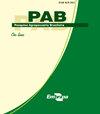母系对莴苣种子耐热性的影响
IF 0.7
4区 农林科学
Q3 AGRICULTURE, MULTIDISCIPLINARY
引用次数: 0
摘要
摘要本研究旨在探讨母系对莴苣种子耐热性的影响,并寻找莴苣幼苗耐热性的酶标记。选用Everglades耐热品种、Verônica易感品种及其互交杂交种的种子。在20℃和32℃条件下,对各品种和互交杂交种进行发芽率和活力(萌发速度指数)试验。耐热性定义为在32℃下发芽的能力。为了获得可能与耐热性相关的标记,进行了酶促试验。用ImageJ软件对电泳酶提物的条带进行定量分析。这些杂交后代的行为与它们的雌性后代相似。当品种Verônica为雌性时,杂交种子在高温下不发芽,酯酶的表达也较低。然而,当母系为Everglades品种时,杂种在高温下萌发率高,酯酶表达量高。因此,莴苣种子对热抑制的耐受性存在母系效应,酯酶可作为鉴定该性状纯合后代的选择标记。本文章由计算机程序翻译,如有差异,请以英文原文为准。
Maternal effect on thermotolerance in lettuce seeds
Abstract The objective of this work was to evaluate the occurrence of the maternal effect on thermotolerance in lettuce (Lactuca sativa) seeds, as well as to find an enzymatic marker for this trait in lettuce seedlings. Seeds from the Everglades thermotolerant cultivar, the Verônica susceptible cultivar, and their reciprocal hybrids were used. For each cultivar and reciprocal hybrid, germination percentage and vigor (germination speed index) tests were carried out at 20 and 32°C. Thermotolerance was defined as the capacity to germinate at 32°C. To obtain markers that could be associated with thermotolerance, enzymatic tests were performed. The bands of the electrophoretic enzymatic extracts were quantified using the ImageJ software. The hybrids behaved similarly to their female genitors. When cultivar Verônica was the female genitor, hybrid seeds did not germinate at high temperatures and showed a lower expression of the esterase enzyme. However, when the female genitor was the Everglades cultivar, hybrids showed a high germination at high temperatures and a greater esterase expression. Therefore, there is a maternal effect on tolerance to thermoinhibition in lettuce seeds, and the esterase enzyme can be used as a selective marker to identify homozygous progenies for this trait.
求助全文
通过发布文献求助,成功后即可免费获取论文全文。
去求助
来源期刊

Pesquisa Agropecuaria Brasileira
农林科学-农业综合
CiteScore
1.20
自引率
0.00%
发文量
45
审稿时长
9-18 weeks
期刊介绍:
Pesquisa Agropecuária Brasileira – PAB – is issued monthly by Empresa Brasileira de Pesquisa Agropecuária – EMBRAPA, affiliated to Ministry of Agriculture, Livestock and Food Supply. PAB publishes original scientific-technological articles on Plant Physiology, Plant Pathology, Crop Science, Genetics, Soil Science, Food Technology and Animal Science.
Its abbreviated title is Pesq. agropec. bras., and it should be used in bibliographies, footnotes, references and bibliographic strips.
 求助内容:
求助内容: 应助结果提醒方式:
应助结果提醒方式:


